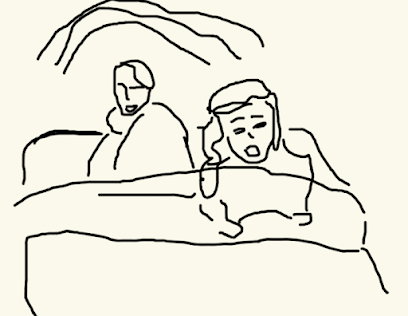How is intelligence nurtured?
Most of the time, we are protected by too many things, to reach the truth of this world barehanded. Above all, those who are typical, or in the cultural majority, tend to be placed socially in such a comfortable position so that good intentions often turn into ignorance, common sense resonates with oppression, without the subjects, tragically for the soul perhaps, becoming aware of and acknowledging such terrible situations.
Hunchback by Sao Ichikawa has just been awarded the 169th Akutagawa Prize, and this masterpiece from a newcomer into literature shakes the world as we know it, and moves the readers closer to the kind of intelligence that humans need and deserve. However, there will still be people who would pass by without touching this philosopher's stone. Even if they get close to it, it might be only human nature to simply fly by and let their psychological guard mechanisms blur their sights again.
The novel gives us a sense of the author's command of language, a unique way of looking at the world from self-defined angles of approach to various representations, which the author has presumably been building up in the days of a prolonged period of handicapped and challenged life. Hunchback conveys a kind of fascination with the attitudes of the human spirit, which goes beyond the plot that has been circulating in the Japanese media so that many literary types would be probably familiar with it by now.
It is a personal novel, but that does not mean that it is a reading that relies only on subjectivity, topicality or eye-catching literary gadgets. The author's mind behind it all works as a black hole that would attract readers of today and the future. The author indeed seems to be a black hole of considerable mass, like the one at the centre of this galaxy. As the imploding novel spins, it emits radio waves of words far and beyond.
As discussed in some of the selection reviews published in Bungeishunju, it is understandable to argue that the biblical citation and the fiction within fiction inserted respectively in the middle and the end of the novel, could have been better omitted. Nevertheless, as several of the judges of Akutagawa Prize wrote, there is something that makes us feel that the author would have seen some inevitability in placing these literary oddballs precisely in those places, even if it might appear disconcerting from a typical literary perspective.
Ignorance out of good intentions and oppression emanating from common sense are naturally inherent not only in the issue concerning physical handicap, but also in the institution of literature itself. The objections the author raises against the culture of the book lovers ignorant of the need for universal access for all spectrum of people could, if taken seriously enough, extend to the main assumptions of today's privileged advocates of literature. In Botchan, Soseki Natsume had readers off their guard, by appearing to narrate the dark sides of the local town of Matsuyama, while he was actually dissecting the limits of the supposedly modernizing Japan of the Meiji era. The same could be happening in Hunchback on a devastating scale.
Reading a great novel sometimes brings outlandish associations out of the blue. After finishing Hunchback, I suddenly remembered, as if in an episode of Marigold Linton's precious fragments, an episode with my awe-inspiring genius friend W in senior high school. W later became the top scorer in the nation wide Common College Entrance examination, an almost trivial feat considering his analytic and aesthetic mind combining the faculties shown by protagonists Narcissus and Goldmund in Herman Hesse's eponymous novel. On a winter school trip to Kyoto and Nara in the second year of school, I was somewhat embarrassed to be sitting around a hot pot with my classmates, including W. Although I kept the appearance of coo, I was secretly perplexed by the fact that I was suddenly in a intimate setting, wondering when to take the boiled ingredients into my own bowl and how to use the chopsticks, surrounded by my classmates, with whom I was usually discussing high-minded matters such as the philosophy of Friedrich Nietzsche.
At that time, my friend W said, casually and with a smile on his face. "I think real intelligence is tested on such occasions like eating hot pot together." I was pierced, and then comfortably struck and settled, by W's remarks.
Sao Ichikawa's ways of going about situations of accidental intimacy and social antagonism in Hunchback shows real intellect of that kind, sitting together for a hot pot. The truth of the world lies not in the abstract far away, but in the near, close to our skin. Hunchback bends the space-time of our everyday life experiences to show us just a little bit of the existence's rainbow hidden behind all humanity. Sao Ichikawa is an astronomer of existence.






